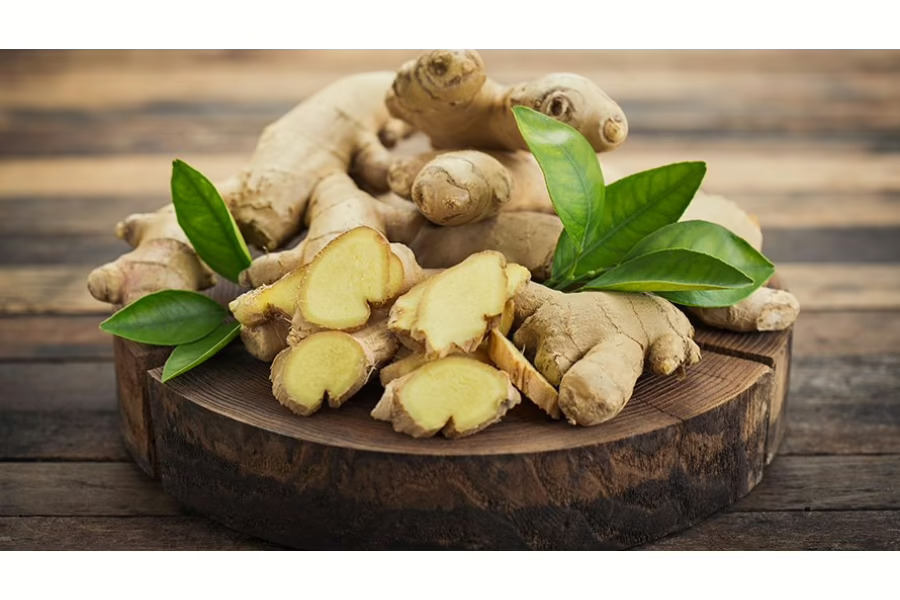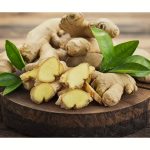Ginger, scientifically known as Zingiber officinale, is a flowering plant whose rhizome (commonly referred to as ginger root) is widely used as a spice, medicine, and flavoring agent. Native to Southeast Asia, ginger has been celebrated for its aromatic flavor and remarkable health benefits for centuries.
Uses of Ginger:
- Culinary Uses: Ginger is a versatile ingredient used in cooking and baking. It adds a warm, spicy flavor to dishes, beverages, and desserts, including teas, curries, and smoothies.
- Medicinal Uses: Traditionally, ginger has been used in natural remedies for its anti-inflammatory, antioxidant, and digestive properties.
- Aromatherapy and Cosmetics: Ginger oil is often used in massages, skincare products, and aromatherapy for its warming and soothing effects.
Health Benefits of Ginger:
- Improves Digestion: Ginger stimulates saliva and bile production, aiding digestion and reducing bloating.
- Anti-Inflammatory Effects: The compound gingerol helps combat inflammation, alleviating pain in conditions like arthritis.
- Relieves Nausea: Ginger is a proven remedy for motion sickness, morning sickness during pregnancy, and chemotherapy-induced nausea.
- Boosts Immunity: With its antioxidant properties, ginger helps strengthen the immune system and fight infections.
- Supports Heart Health: Ginger may help lower blood pressure, cholesterol levels, and improve circulation.
Nutritional Value (per 100 grams of fresh ginger):
- Calories: 80
- Carbohydrates: 17.8g
- Protein: 1.8g
- Fat: 0.8g
- Fiber: 2g
- Vitamin C: 5mg (6% DV)
- Potassium: 415mg (12% DV)
- Magnesium: 43mg (10% DV)
Conclusion:
Ginger is not just a flavorful spice but also a nutritional powerhouse that offers numerous health benefits. Whether consumed fresh, dried, or as a supplement, adding ginger to your daily routine can improve digestion, reduce inflammation, and enhance overall well-being.








